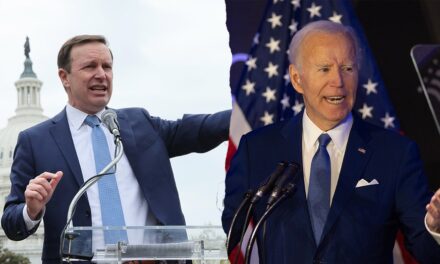In a striking commentary, former House Speaker Newt Gingrich has voiced his concerns regarding President Joe Biden’s use of an autopen to sign legislation. Gingrich suggested that this practice might evolve into one of the most significant scandals in American history. The implications of utilizing an autopen—a mechanical device that replicates a person’s signature—are profound, stirring debate about authenticity, responsibility, and the very nature of executive power.
As political discourse intensifies, Gingrich’s remarks follow a broader trend of skepticism surrounding the Biden administration’s transparency and governance. The autopen, which has been utilized by presidents for decades, allows leaders to delegate the signing of documents, particularly when they are unable to do so in person. However, Gingrich raises the question: at what point does delegation undermine accountability?
Critics argue that the employment of such technology could pose ethical dilemmas. If a president opts for an autopen to streamline the signing of critical legislation, concerns arise regarding whether the action reflects genuine presidential intent. For many, the signatures of our leaders symbolize their personal commitment to legislation that shapes the nation. The possibility of disconnection between the president and the actions taken in their name could pose a crisis of legitimacy.
Gingrich’s remarks come at a time when public trust in government institutions is waning. Voter confidence has eroded over the years due to a variety of scandals, perceived corruption, and contentious political climates. Now, with the introduction of technology overshadowing human involvement, many citizens may feel even more alienated from the decision-making processes that directly affect their lives.
In the historical context, the practice of using an autopen is not new. Past presidents, including Ronald Reagan and George W. Bush, utilized the device for practical reasons—time constraints, travel, or health issues. However, when these instances occurred, they were often met with differing levels of public scrutiny. This raises questions about the varying standards applied to different administrations and how partisan perspectives can shape perceptions of legitimacy.
Supporters of Biden argue that the use of an autopen is merely a continuation of a longstanding presidential practice, intended to maintain efficiency in a demanding political landscape. In an era when legislative agendas move with lightning speed, some contend that the use of technology to facilitate presidential duties is simply practical. They assert that what matters most is the outcome of the policies enacted rather than the method by which they are signed into law.
However, critics, including Gingrich, are not easily swayed by justifications rooted in efficiency. They maintain that the deliberate act of signing legislation is a fundamental aspect of leadership that cannot be outsourced to machinery. The act of signing serves as a symbolic gesture, an outward demonstration of commitment to the laws that govern the nation. By delegating this act to an autopen, a president might unintentionally signal a lack of engagement in the legislative process.
The topic of trust extends beyond the autopen itself. For many Americans, the manner in which lawmakers conduct their business reflects broader concerns about the integrity of the democratic process. The reliance on technology raises additional worries about the potential for manipulation and control over the narrative. The worry is not only about the physical act of signing legislation but also about the transparency surrounding the decision-making itself.
Gingrich’s comments resonate within a larger narrative criticizing the Biden administration’s approach to transparency and accountability. From inflation and economic challenges to foreign policy decisions, the administration has faced scrutiny from both sides of the political spectrum. Issues surrounding openness have fueled debates that transcend party lines, prompting calls for an examination of executive actions and their intended consequences.
The conversation surrounding the autopen could serve as a microcosm of a more extensive discussion about modern governance. In a world defined by rapid technological change and information overload, the need for authentic leadership has never been more critical. The challenge lies in balancing the advantages of technology with the essential element of personal accountability that citizens expect from their elected officials.
As the dialogue unfolds, it remains to be seen whether Gingrich’s predictions will hold water. The scrutiny surrounding Biden’s autopen usage may catch the attention of lawmakers, activists, and concerned citizens alike. The question remains: will this be viewed as just another political controversy, or will it indeed emerge as a significant turning point in the discourse on leadership and accountability in modern governance?
In conclusion, Newt Gingrich’s reflections on President Biden’s use of an autopen bring to light vital issues about the intersection between technology and governance. The former speaker’s suggestion that it may lead to one of the biggest scandals in U.S. history serves as a powerful reminder of the importance of authenticity and trust in leadership. As political narratives continue to evolve, the implications of these discussions will likely resonate beyond the current administration, informing how future leaders engage with their constituents and uphold the responsibilities entrusted to them by the American people.
As the political landscape shifts, it will be crucial for citizens to engage with these conversations, demanding accountability and transparency from their leaders. Whether through traditional means or the advancement of technology, ensuring that the values of democracy remain intact should remain a priority for all who participate in the political sphere. The path forward is one that requires vigilance and an unwavering commitment to the principles that define American governance.
































